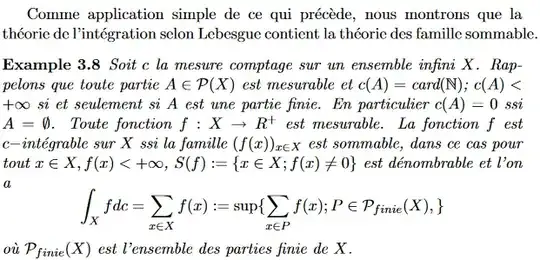In class my professor introduced the following terminology:
Let $J$ be an arbitrary infinite set and let $f:J\to\mathbb{R}$ be a real-valued function. Then the symbol $\sum_{j\in J}f(j)$ is the series determined by $J$, with terms $f(j)$. We say that $\sum_{j\in J}f(j)$ converges to $S$ unconditionally if for every $\epsilon>0$, there is a finite subset $F_{0}\subset J$ such that if $F$ is any finite subset of $J$ that contains $F_{0}$, then
$\bigg|\sum_{j\in F}f(j)-S\bigg|<\epsilon$.
Does anyone know of any textbooks which discuss this topic? I haven't seen it in Rudin's Principles of Mathematical Analysis or in Royden and Fitzpatrick's Real Analysis. Any suggestions are appreciated!
